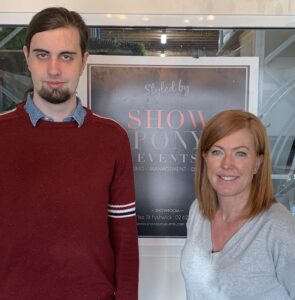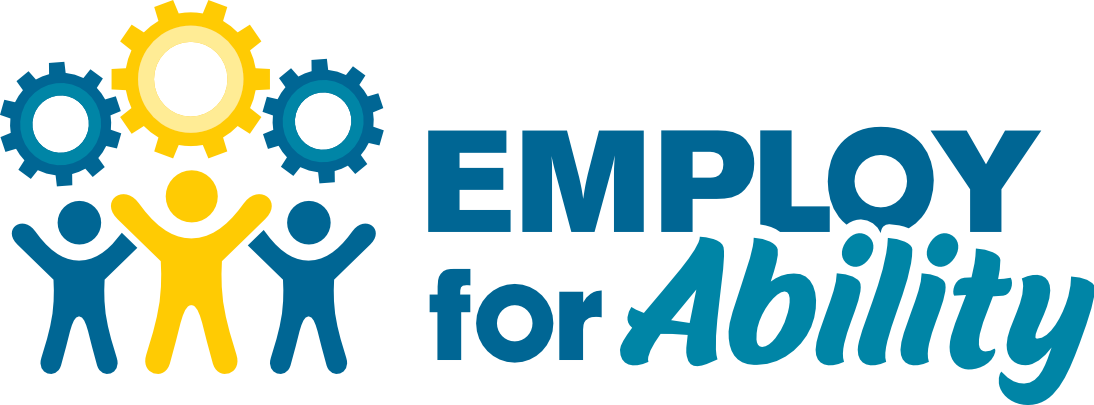by David Smith | Sep 19, 2019 | Autism, Employment, Events & Awards, Neurodiversity
I am really proud of the achievement of my client Thom, who was offered a role with Show Pony Events today.
A big thank you to Jillian Hart (MD of Show Pony Events) who understands the value staff of different abilities can provide to her organisation and clients.
Thom is studying Music production at CIT and has experience through his study of many of the aspects required for a role in the events management industry. Jillian understands that staff who are neurodiverse may not interview the same as other workers but have the ability to be productive members of her team. her business is leading the way demonstrating that inclusion adds value to your team, clients and business.
Thom is the 47th person on the Autism Spectrum I have assisted to find meaningful employment.

David Smith for Employ for Ability – Linkedin + Facebook
An autism and neurodiversity employment specialist and advocate.
Working for the last 20 years in the recruitment sector coaching and mentoring clients, candidates and staff to reach their potential.

by David Smith | Sep 3, 2019 | Autism, Competitive advantage, Employment, Neurodiversity
Autism and neurodiversity are often used interchangeably. Autism is a diagnosis and neurodiversity is a social term used to demonstrate the value of people with this diagnosis. Organisations are starting to learn that hiring people with neurodiversity can create incredible value.
Diagnosis of ASD
Autism Spectrum Disorder (ASD) is the clinical term used to diagnose somebody who has impairments due to challenges with social communication and interaction, as well as restrictive and repetitive behaviours, interests or activities as outlined in the Diagnostic Standards Manual (DSM-5) (American Psychiatric Association, 2013). It replaces a range of diagnoses in the DSM-IV, that included Autistic Disorder, Asperger’s Disorder and Pervasive Developmental Disorder – Not Otherwise Specified (PDD-NOS) (American Psychiatric Association, 2000).Medical V Social
Medical V Social view of disability
These medical terms, including the word disorder, have a very negative meaning for people who are on the spectrum and imply disability. The medical view of disability is we try to cure or fix people who have a medical problem. People are disabled due to their medical impairments. Another view is the social model of disability. The social view is that society causes a person to be disabled due to barriers we put in their way. Barriers are not just physical but include attitudes and stereotypes. if you ask most people who are on the spectrum, they will not consider themselves to be disabled.
Neurodiverse and Neurotypical
A great term that reflects the social view of autism is neurodiversity. The term neurodiversity is attributed to Judy Singer an Australian social scientist who used the term in her honours thesis. It is used to demonstrate that many people with autism are neurologically different and do not see themselves as disabled. It is controversial in that it does not reflect the lived experience of those people with high support needs, it generally applies to people with ASD Level 1 and 2.
Why I like the term neurodiversity over ASD in an employment context, is that it demonstrates to society and potential employers that these candidates have a different perspective or way at looking at their life compared to a neurotypical person. Neurotypical is a great word in this context, as normal implies the other person is not normal. What is normal anyway? Normal is a word to describe a standard or an average of society that is typical. If people on the spectrum have a label, then the label for people who are not on the spectrum who are neurologically typical is neurotypical.
Diversity and Inclusion
All modern workplaces accept and understand that diversity outlines that we are all unique individuals. Individuals who look different, have different backgrounds, beliefs and perspectives. This diversity provides advantages to organisations who fully implement diversity programs. The goal of diversity programs is ultimately inclusion in society for all people. Yet diversity programs are only just realising that diversity needs to include diversity of thought. This is not something new, we have been testing our staff for years using Myers Briggs, DISC, HEXACO, NEO and many other profile tools. People like to label themselves as being a certain “type” and many people still read their horoscopes. So why is it a big leap to accept that if we are different and have different personalities then we may think or be different neurologically. Neurodiverse.

Neurodiversity needs to create value
Implementing neurodiversity programs can be done for altruistic reasons. After-all, it is a good thing to do. But in business, doing something different needs to create value and be sustainable. A key understanding, I learnt from my previous CEO (Peter Acheson) is that for a business to fully embrace a new program it needs to be sustainable and create value for all parties. It needs to provide value to the existing staff members (neurotypical and neurodiverse), provide value to the new staff that are neurodiverse, provide value to the clients who buy your services and create value for the shareholders. In that order. Happy engaged staff create happy engaged clients, that create happy and engaged shareholders.

Neurodiversity makes good business sense
Neurodiversity programs do just that, they not only feel good to do, they create good sustainable outcomes. The evidence is there in Australia and overseas. Programs runs by Specialisterne, Xceptional, Federal Government, large and small companies are demonstrating the abilities that hiring neurodiverse staff provides. New staff with neurodiversity work hard, develop new ideas, solve difficult problems and work just as well as existing staff, usually better. Neurodiversity programs have other benefits to organisations. They support existing staff with neurodiversity, it shows neurotypical staff the company is fully inclusive, and it creates better leaders and managers. Leaders who understand that all staff are unique and when managed well can create improved value for themselves, their clients and the organisation.
The key to undertaking a neurodiversity program is learning about autism. Managers may think that hiring someone who is on the spectrum will make their lives harder. It is no different to managing any other staff member. Current programs are showing that turnover of staff in neurodiversity programs is significantly lower than hiring neurotypical staff. Working with a good neurodiversity partner can overcome this concern and allow your organisation the benefit of creating a fully diverse and inclusive team that will create value.
David Smith for Employ for Ability – Linkedin + Facebook
An autism and neurodiversity employment specialist and advocate.
Working for the last 20 years in the recruitment sector coaching and mentoring clients, candidates and staff to reach their potential.




